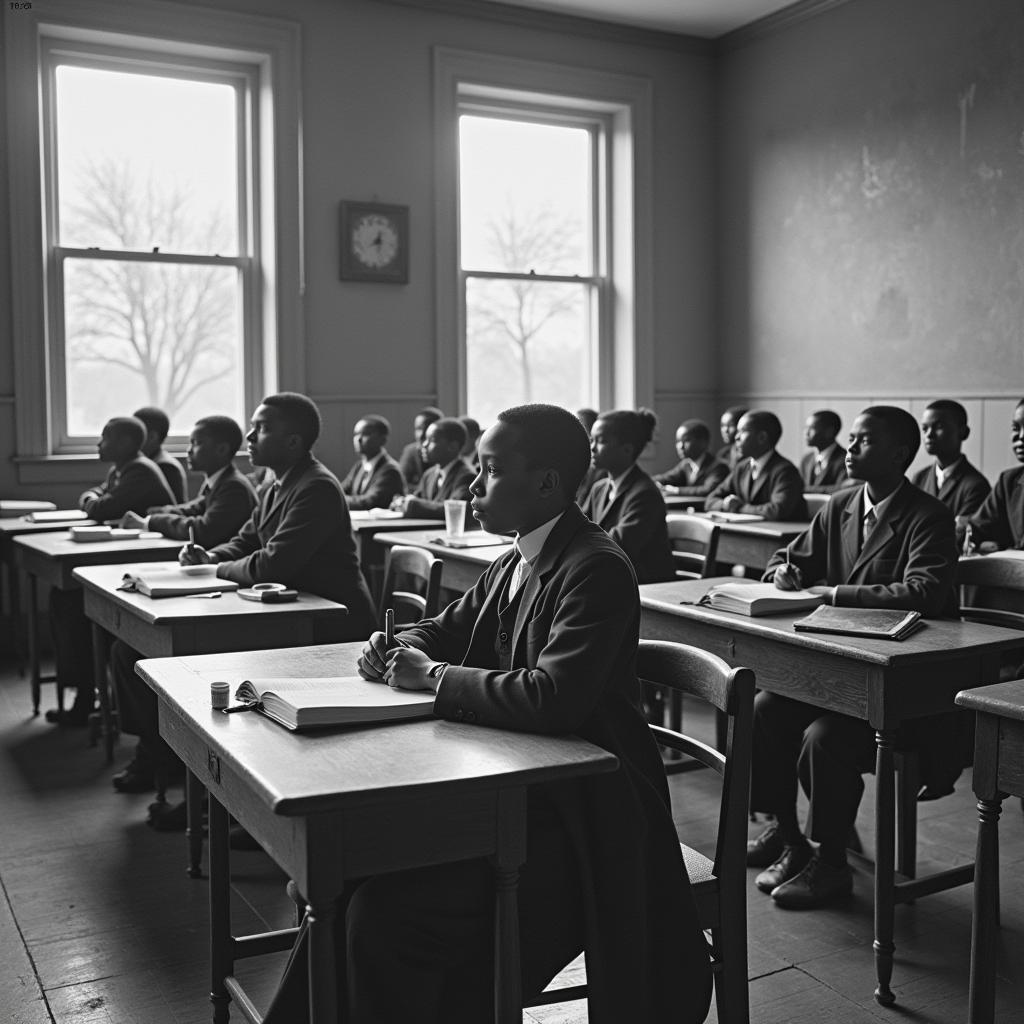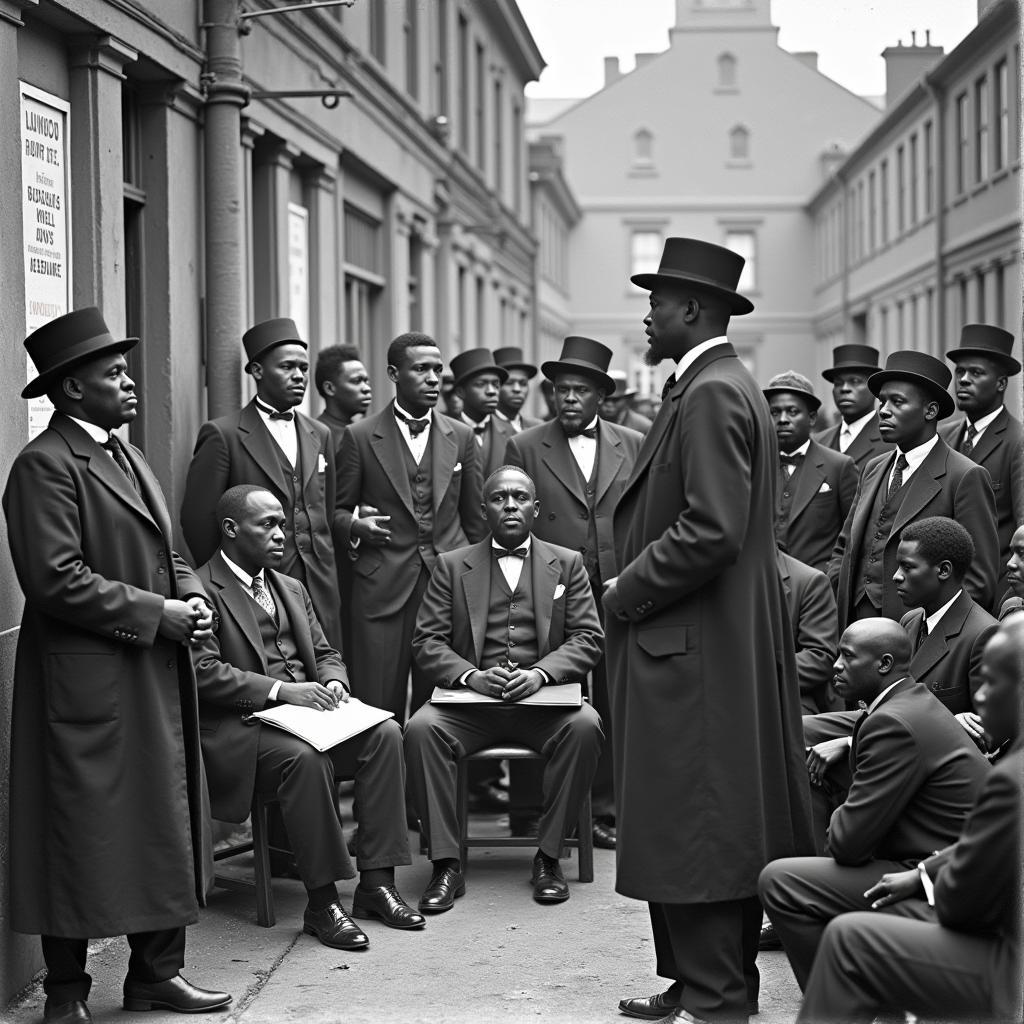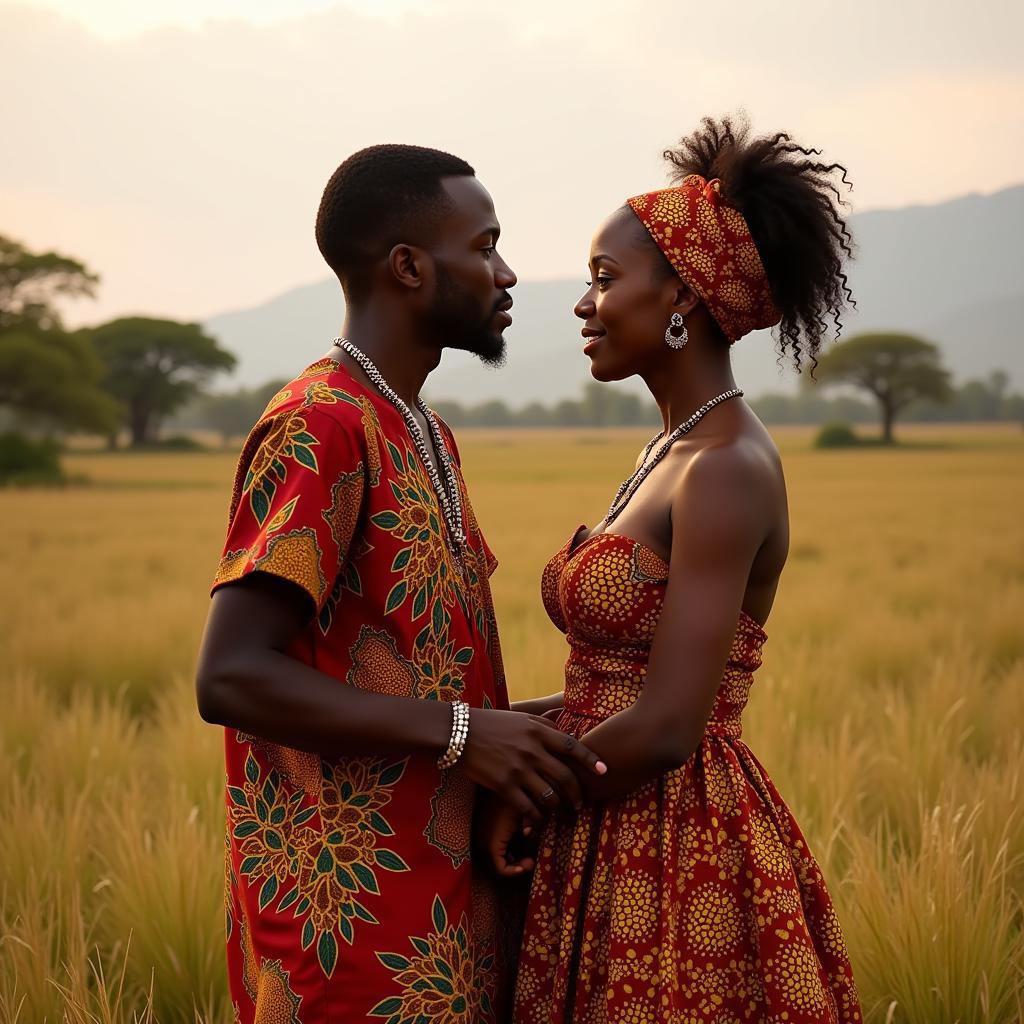1896 African American History: A Year of Pivotal Change
1896 marked a turning point in African American history, a year etched in memory for the landmark Plessy v. Ferguson Supreme Court decision. This decision legitimized racial segregation under the “separate but equal” doctrine, casting a long shadow over the fight for civil rights. But 1896 wasn’t just defined by this single event. It was a year of complex social and political dynamics, a testament to the resilience and resistance of African Americans in the face of adversity. african american supreme court cases
The Impact of Plessy v. Ferguson
The Supreme Court’s ruling in Plessy v. Ferguson solidified the Jim Crow era, sanctioning segregation in public facilities. This decision had a profound and devastating effect on African American life, limiting access to education, healthcare, transportation, and other essential services. The “separate but equal” doctrine was rarely equal in practice, further entrenching racial inequality and discrimination.
Black Resistance and Activism in 1896
Despite the setback of Plessy v. Ferguson, African Americans continued to organize and resist oppression. This year saw the continued growth of Black newspapers and publications, providing vital platforms for advocacy and community building. Figures like Ida B. Wells-Barnett continued their tireless work against lynching and racial violence. National organizations, such as the National Afro-American League, worked to mobilize Black communities and challenge discriminatory laws.
The Rise of Black Educational Institutions
1896 also witnessed the ongoing development of Black educational institutions. These institutions played a crucial role in providing educational opportunities for African Americans denied access to white schools. african american education in the 1920s They became centers of Black intellectual life and leadership, nurturing future generations of activists and scholars.
 African American Education in 1896
African American Education in 1896
Economic and Social Realities for African Americans
What were the economic and social realities for African Americans in 1896? Many faced sharecropping and tenant farming in the South, trapped in cycles of debt and poverty. In both the North and South, they encountered discrimination in employment and housing, limiting economic mobility. Despite these hardships, Black communities demonstrated remarkable resilience, establishing businesses, churches, and mutual aid societies to support one another.
african countries not colonized
The Role of Black Churches and Community Organizations
Black churches served as vital anchors within communities, offering spiritual guidance, social support, and spaces for organizing. Fraternal organizations and mutual aid societies provided critical resources and fostered a sense of collective identity.
“The church was more than just a place of worship,” explains Dr. Anika Williams, a historian specializing in late 19th-century African American history. “It was a refuge, a source of strength, and a hub for community activism.”
The Legacy of 1896
The legacy of 1896 is complex and multifaceted. While Plessy v. Ferguson represented a major legal defeat, the year also showcased the unwavering spirit of African Americans in the struggle for equality. The seeds of resistance sown in 1896 would continue to grow, ultimately leading to the Civil Rights Movement of the mid-20th century.
 African American Activism in 1896
African American Activism in 1896
Conclusion
1896 was a pivotal year in African American history, marked by both adversity and resilience. The Plessy v. Ferguson decision cast a long shadow over the fight for civil rights, but the ongoing resistance and community building of African Americans laid the foundation for future struggles. 2 african countries never colonized Understanding this complex historical context is crucial to comprehending the ongoing fight for racial justice.
FAQ
- What was the significance of Plessy v. Ferguson?
- How did African Americans resist Jim Crow laws?
- What role did Black churches play in the late 19th century?
- What were the major economic challenges facing African Americans in 1896?
- Who were some prominent African American activists during this period?
- How did 1896 contribute to the later Civil Rights Movement?
- What were some of the key educational advancements for African Americans in 1896?
Need further assistance? Contact us at Phone: +255768904061, Email: kaka.mag@gmail.com or visit our office at Mbarali DC Mawindi, Kangaga, Tanzania. We have a 24/7 customer service team available.
